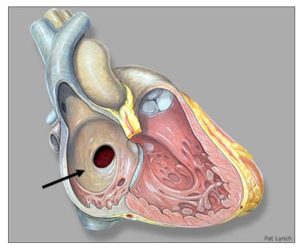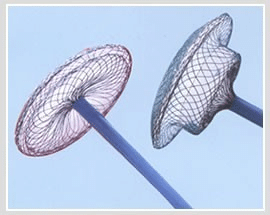An atrial septal defect (ASD) is a congenital heart defect where there’s an abnormal connection between the upper chambers (atria) of the heart. This “hole” allows blood to flow from the left atrium to the right, increasing pressure and volume in the right side of the heart. Over time, this can cause the right heart to stretch and, if left untreated, may lead to heart failure, heart attack and stroke due to blood clots. Understanding atrial septal defect symptoms and seeking the right diagnosis is crucial to managing the heart condition effectively.
Atrial Septal Defect Symptoms
Atrial septal defect symptoms can be subtle, especially in adults. Many individuals may not experience noticeable issues, with the condition only being picked up during a routine medical check-up. However, in some cases, mild shortness of breath, chest pain, or heart palpitations can be a sign of ASD. The most common way ASD is detected is through a doctor hearing an unusual sound (heart murmur) while listening to your heart or during tests such as an electrocardiogram (ECG) or an echocardiogram (TTE).
Getting the right tests and diagnosis is key to addressing the condition early if you’re concerned about atrial septal defect symptoms. Contact our office to schedule a private healthcare professional.
Below is the illustration showing the “hole in the heart” defect:
Private ASD Diagnosis and ASD Tests in the UK
If atrial septal defect symptoms are present, or if a doctor suspects ASD, further ASD tests are usually recommended. Firstly, a cardiologist will look into your symptoms and physical activity examination. After that, various ASD tests in the UK can help to diagnose the condition, including:
- Private Echocardiogram (Echo): A scan that uses ultrasound (sound waves) to produce pictures of the heart without radiation.
- Private Electrocardiogram (ECG): A very simple and quick test that looks at the heart’s electrical activity over time.
- Private Transoesophageal Echocardiography (TOE): A detailed scan that provides a clearer view of the heart structure.
- Private Cardiac MRI: This helps assess the cardiac defect’s size and location.
- Private CT Coronary Angiogram: This test looks for any associated coronary artery disease.
These ASD tests are vital in determining the size of the heart defect and deciding on the appropriate treatment path, monitoring, or closure. If you’re considering a private ASD diagnosis, our specialist cardiologists can offer more personalised and quicker assessments during consultation.
ASD Treatment Options
After a private ASD diagnosis, the next step is deciding on treatment. The approach to ASD treatment depends on the size of the hole and its impact on the heart. Monitoring might be sufficient for smaller atrial septum defects that aren’t causing significant problems. However, if closure is necessary, there are two main options:
- Surgical procedure: An open-heart surgery to close the hole.
- ASD Closure Device: A private ASD closure procedure is a minimally invasive approach that involves placing an umbrella-like device through a blood vessel and a small puncture in the groin to close the defect.
For many, the umbrella closure is preferred due to its less invasive nature, success rate, and quicker recovery time.
Below is an example of an umbrella device used to close ASDs:
Ready to Book Your Private ASD Diagnosis?
Either give us a call, e-mail or fill out our simple contact form to arrange your consultation with London’s top cardiologist specialists.
Recognising atrial septal defect symptoms early and seeking the right ASD tests in the UK can make a significant difference in long-term health outcomes, reducing the risk of stroke. Whether you suspect ASD or have been diagnosed or seek medical advice from specialist cardiologists, we ensure you receive the best care.
Watch ASD closure with Dr Iqbal Malik at Hammersmith Hospital
Article by Dr Malik, a leading UK cardiologist. He works at One Welbeck Heart Health – London’s Largest Private Cardiology Group, and at Hammersmith Hospital, Imperial College Healthcare NHS Trust, London, one of the largest NHS Trusts in the UK.




